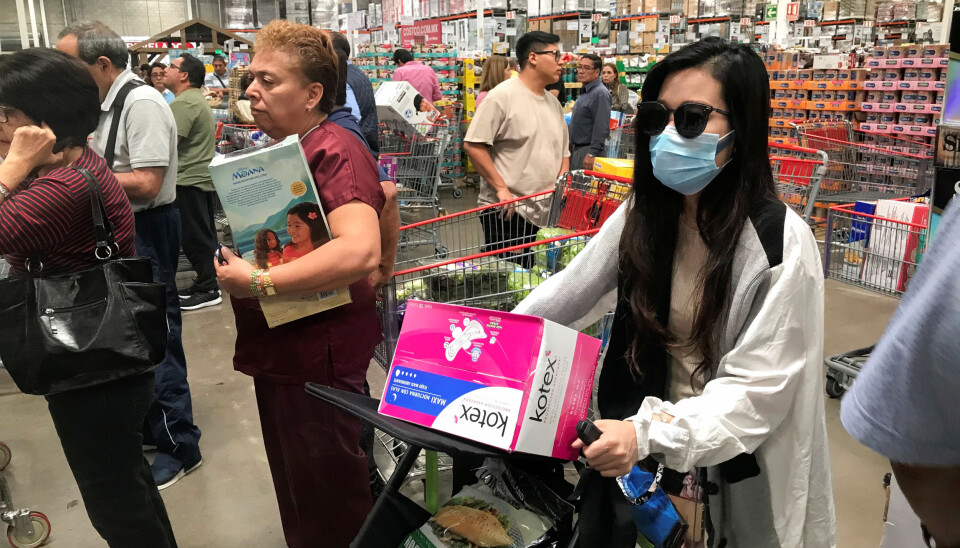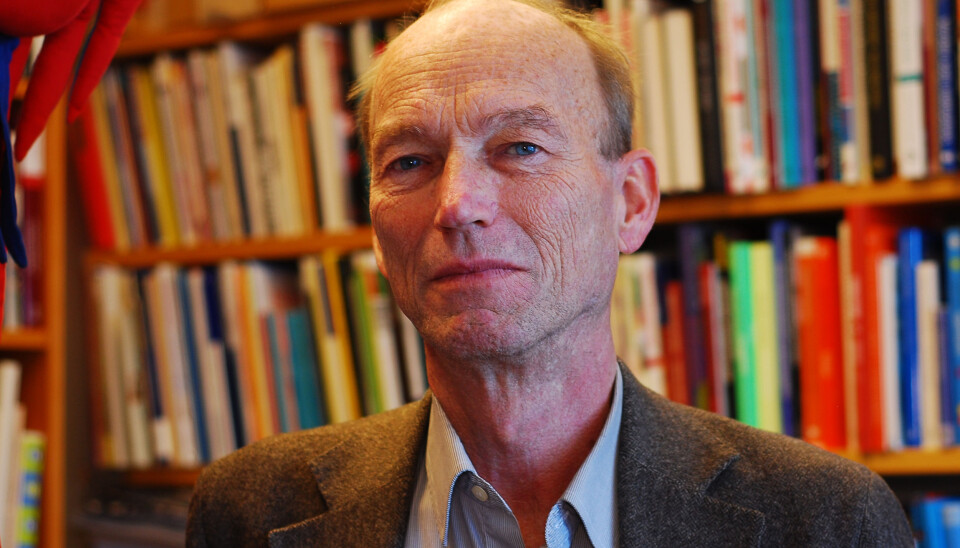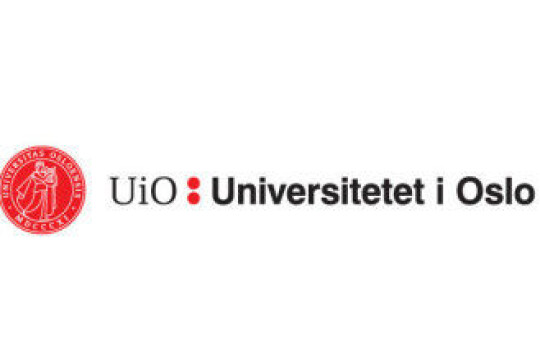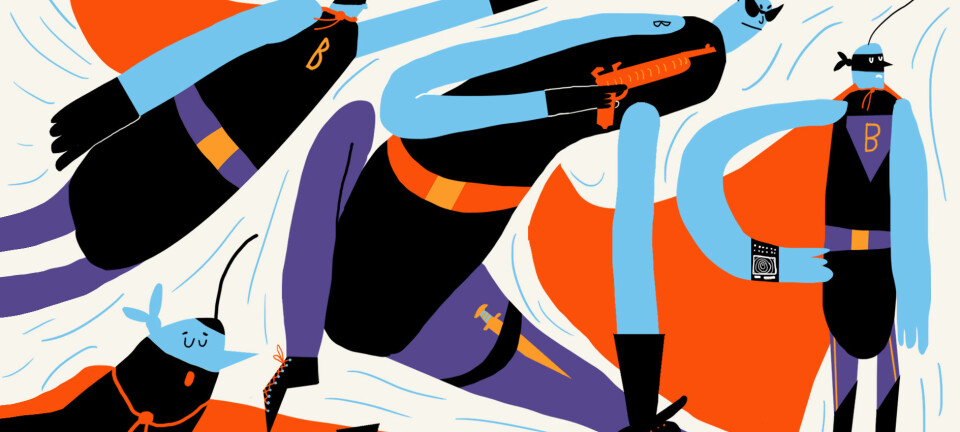This article is produced and financed by the University of Oslo - read more

The world with viruses: Reminding us how little control we have
"The coronavirus is a window, enabling us to see alternative ways of organising society", says Thomas Hylland Eriksen. The Professor in Social Anthropology has been conducting research on crises in an overheated world.
The first case of COVID-19 was reported in Wuhan in China on 31 December 2019. Over a short period of time the virus has become a global pandemic, something which is unprecedented in modern history.
However, the lightning speed with which it has spread could be a symptom of a phenomenon with which Thomas Hylland Eriksen, Professor at the Department of Social Anthropology, is already highly familiar with: overheating.
"During our Overheating research project, we investigated uncontrolled, accelerating changes that do not have a thermostat to cool down the process. The coronavirus reminds us how closely interlinked the world is and how little control we actually have over it", says Hylland Eriksen.
Networks become visible during times of crisis
Our global economy is at the mercy of the import and export of goods and services. Products are manufactured on the other side of the world and transported to our shop shelves by aircraft and container ships.
The cows which produce milk for our table and beef for our plates are fed on soya from Brazil.
Tourism and industry constantly draw up new lines which criss-cross the planet every single day.
The world is permeated by invisible networks which only become visible when a crisis occurs, maintains the Professor.
"In our daily lives most of us do not see the oil platforms in the North Sea, or the container ships which deliver our goods. We do not see the electromagnetic waves which enable us to use mobile phones or the Internet. But when it doesn’t work, we notice it", says Thomas Hylland Eriksen.
"It is only then that we start to see the vulnerability of the system. If we really want to eradicate the virus, we need to stop all public communications, all traffic. Then we really would experience how dependent we are on the global infrastructure", he says.
During several of the cases investigated during the Overheating project, the researchers discovered a mechanism which is called the butterfly effect, where small events can cause major upheavals in the long term. This idea is based on the image of a butterfly flapping its wings in Rio de Janeiro, and then setting off a number of ripple effects, causing a blizzard in New York.
According to Hylland Eriksen, a similar pattern appears to apply to the coronavirus.
"It started as a local outbreak in China, and now the stock exchanges are falling, aviation companies are going bankrupt and runways, schools, events and transport arteries are being closed. A total meltdown of the global economy is actually a possibility", he says.

We need to live more slowly
Although the Professor is worried about the virus, and the increasing damage that it is causing, he believes that the situation may also help to produce constructive results. He has already started working on an application for research funding which has been announced by the Research Council of Norway, linked to understanding the COVID-19 phenomenon. Its working title is “From Vulnerability to Sustainability”.
"The coronavirus is a window through which we can see alternatives for how we can organise society. After 22 July, when a terrorist killed 77 people in Norway, which was a different type of crisis, I was hoping for a comprehensive discussion about multiculturalism. Unfortunately this did not happen. However, the crisis that we are now facing is greater in many ways, more global. The current system is creating vulnerability."
"I hope that this crisis can make more of us understand that we can improve our quality of life by doing less, and doing more things more slowly", says Hylland Eriksen.
The Professor has described our pursuit for happiness in an affluent society in his book entitled The Big Bad Wolf Syndrome (2008), based on studies which show that the quality of life in Norway has dropped since the 1950s, despite increased prosperity, mobility and access to goods and services.
"We need to retain our global awareness, but act more at a local level. We need to live more slowly, travel less by plane and eat less meat. We need to make sourdough bread and go for walks in the woods. I do not want to rule out the fact that such changes could occur as an unintentional side effect of this pandemic. If we are now forced to slow down. Perhaps next time we will discover that it feels good to slow down the pace", he says.
Epidemics result in change
This would not be the first time that an epidemic has changed the course of history. Professor Hylland Eriksen refers to how the fall of the Roman Empire may have been linked to the plague. How the black death possibly resulted in the end of feudalism and the start of the modern era in Europe. The fact that a high percentage of the native Indian population in America died out because Europeans introduced diseases that they had become used to because they had been living with domestic animals for a long time, diseases which were also used as weapons during the massacres.
"I do not wish to speculate about whether or not we are witnessing something similar now. People have been crying wolf too many times during the last few years during smaller epidemics involving SARS and swine flu. But this time is seems to be more serious. There is something about the exponential growth of infectious cases. Once the dust has settled after this crisis, we need to seize the opportunity to reconsider whether or not we really want to have an overheated world", he says.


































